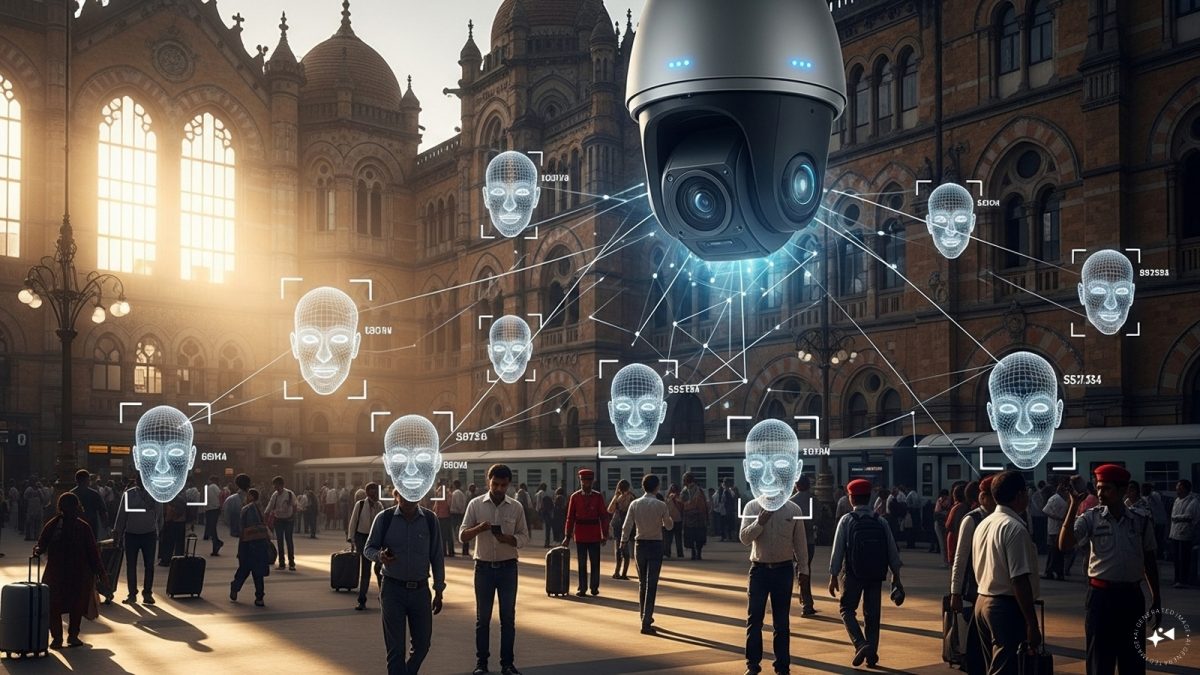Enhanced Security & Smoother Travel: AI Facial Recognition Coming to Mumbai & Delhi Railway Stations

AI Facial Recognition to Revolutionize Security and Passenger Experience at Key Indian Railway Stations
Get ready for a significant upgrade in safety and efficiency at some of India's busiest railway stations! The Indian Railways is set to roll out Artificial Intelligence (AI)-powered facial recognition technology (FRT) at major hubs in Mumbai and Delhi. This move aims to bolster security measures, streamline passenger flow, and enhance the overall travel experience. But how exactly will this technology work, and what benefits can passengers expect?
Boosting Security: A Proactive Approach
The primary goal of implementing FRT is to enhance security. Railway stations are often crowded places, making them vulnerable to security threats. The AI system will continuously scan CCTV footage and compare faces against watchlists of known criminals, terrorists, and missing persons. Upon identification, security personnel will be alerted, enabling a swift and proactive response. This real-time threat detection capability is a game-changer compared to traditional security methods that rely on manual observation and reactive measures.
Beyond Security: Streamlining Passenger Experience
While security is paramount, the FRT implementation isn't solely focused on crime prevention. The technology also promises to significantly improve the passenger experience. Imagine a future where ticket checking and boarding processes are drastically faster. FRT can potentially be integrated with ticketing systems, allowing for automated verification and quicker access to platforms. This reduces queues, minimizes congestion, and saves valuable time for travelers. Furthermore, the system can be used for enhanced surveillance, identifying suspicious behavior and deterring petty crimes like theft.
How Does the Technology Work?
The FRT system utilizes sophisticated algorithms to analyze facial features and create unique digital profiles. These profiles are then compared against existing databases. The system doesn't store personal information like names or addresses; it only uses facial data for identification purposes. Privacy concerns are being addressed through strict regulations and oversight to ensure responsible use of the technology.
Addressing Privacy Concerns
The introduction of FRT inevitably raises concerns about privacy. Indian Railways assures that the system will be implemented with robust safeguards. Data will be encrypted, access will be restricted to authorized personnel, and regular audits will be conducted to ensure compliance with privacy regulations. Transparency and accountability are key to building public trust in this new technology.
Rollout and Future Expansion
The initial rollout in Mumbai and Delhi stations will serve as a pilot project. Based on the results and feedback, the Indian Railways plans to expand the FRT implementation to other major railway stations across the country. This phased approach allows for continuous refinement and optimization of the system.
A Step Towards Modern and Secure Rail Travel
The integration of AI facial recognition technology represents a significant step towards modernizing Indian Railways and enhancing the safety and convenience of rail travel. By leveraging the power of AI, the railways can create a more secure and efficient environment for millions of passengers every day. This initiative underscores the commitment to embracing technological advancements to improve the overall travel experience in India.






